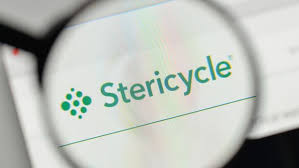DOJ Brings First Corporate FCPA Enforcement Action – Settles with Stericycle for $84 Million (Part I of III)

The Justice Department ended its FCPA enforcement drought by announcing its first corporate settlement in 2022. In a parallel action, the SEC announced its settlement with Stericycle for $28 million for FCPA violations. The SEC’s settlement was its second with a company for 2022 (the first was KT Corp.).
Under the settlement, Stericycle resolved investigations being conducted by the Department of Justice, the Securities and Exchange Commission and Brazil. Stericycle agreed to enter into a three-year deferred prosecution agreement and pay more than $84 million. Stericycle will pay $52.5 million in criminal penalties, $28 million to the SEC in civil penalties and disgorgement, and approximately $9.3 million to Brazilian authorities. DOJ agreed credit up to one-third of the criminal penalty against fines the company pays to Brazil authorities.
Significantly, the DPA requires Stericycle to obtain an independent compliance monitor for a two-year period and then submit a self-report for the rest of the DPA term.
Stericycle is a global waste management company which is headquartered in Illinois. In its factual admission, Stericycle admitted a wide ranging scheme involving payment of bribes to foreign officials in Brazil, Mexico and Argentina. In total, Stericycle paid approximately $10.5 million in bribes to foreign officials in Brazil, Mexico and Argentina to secure business contracts from which Stericycle profited by at least $21.5 million.

Between 2011 and 2016, Stericycle made hundreds of bribe payments to government officials in Brazil, Mexico and Argentina. An executive at Stericycle’s Latin American division directed employees in the company’s offices in Brazil, Mexico and Argentina to pay bribes, usually in cash, based on a percentage of the value of an underlying contract. The co-conspirators tracked the bribe payments through spreadsheets and used code words to discuss the bribes, using such terms as “CP” or “commission payment” in Brazil; “IP” or “incentive payment” in Mexico; and “alfajores” (a popular cookie or “IP” in Argentina.
In resolving this case, the Justice Department applied its Corporate Enforcement Policy factors as follows:
(a) Stericycle did not receive voluntary or timely disclosure credit;
(b) the company earned full cooperation credit by proactively disclosing certain evidence of which the United States was previously unaware; providing information obtained through its internal investigation; making detailed factual presentations to the DOJ; facilitating interviews of foreign-based employees; and collecting and producing relevant information and documents located outside the United States and translating foreign-language documents; and

(c) Stericycle earned remediation credit by: (i) beginning remedial measures in response to its internal investigation prior to the commencement of the investigation; (ii) strengthening its corporate governance by appointing new individuals to senior management and its Board of Directors and establishing a Safety, Operations and Environmental Committee to enhance board oversight; (iii) strengthening its compliance organization by hiring additional compliance personnel, including an experienced chief ethics and compliance officer who reports directly to the CEO and chair of the audit committee; (iv) updating its code of conduct, policies, procedures and controls relating to anti-corruption, including retention and management of commercial agents and third parties, and gifts, travel and entertainment; (v) enhancing its internal reporting, investigations and risk assessment processes; (vi) overhauling its compliance training and communications; (vii) disciplining certain employees including senior managers; and (viii) divesting its subsidiaries in Mexico and Argentina and taking steps to address risks in Brazil.
Despite Stericycle’s extensive remedial efforts, DOJ imposed a two-year independent compliance monitor because the company had not fully implemented or tested its enhanced compliance program.
DOJ noted that Stericycle had some history of prior civil and regulatory settlements, but no prior criminal history.
Based on all of these factors, including the nature of the misconduct and its pervasive misconduct in Brazil, Mexico and Argentina, DOJ agreed to discount the criminal penalty with a 25 percent reduction off the bottom of the applicable U.S. Sentencing Guideline range.
















1 Response
[…] Source link […]